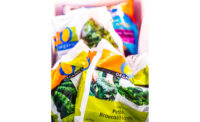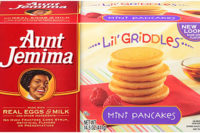As the saying goes, “breakfast is the most important meal of the day.” However, new research from Mintel, Chicago, reveals that not all Canadians agree on the best breakfast location, as nearly two in three (64%) consumers aged 65 and over say that they eat breakfast at home every day compared to just two in five (41%) Canadians overall and just over one-third of (36%) consumers aged 18-34.
While there’s no place like home to eat breakfast for Canada’s senior population, going out for breakfast is becoming a popular option for the majority of consumers. For instance, nearly three-quarters of Canadians (73%) say that they eat breakfast at a coffee shop or quick-service restaurant at least once a month compared to less than half of those aged 65+ (45%).
Indeed, Mintel research indicates that younger consumers are in search of on-the-go breakfast options, as more than half (54%) of consumers aged 18-34 eat breakfast while commuting and three in five (60%) consumers under 45 years old report that they eat breakfast while at work or school.
Here in the United States, breakfast plays out in similar fashion. In foodservice, for instance, breakfast represents a vast frontier to capture additional dining dollars. According to Mintel, sales during the breakfast daypart reached an estimated $52.2 billion in 2015, and are forecast to climb to $60.4 billion by 2019.
Expanded breakfast hours is on the cusp of exploding, with McDonald’s leaping into all-day breakfast menu options and White Castle launched a 24-hour breakfast program that includes a variety of breakfast sandwiches.
On the retail side however, consumers are diversifying their breakfast selections, from yogurt to frozen breakfast sandwiches and even frozen snacks like bagel bites. They’re also opting for foods that are quick to prepare and eat and offer an affordable alternative to eating out. Breakfast sourced at home is valued for its convenience, quick preparation, cost, portability and convenience.
Meanwhile, consumers continue to embrace snacking, which is causing changes in consumers’ relationships with traditional breakfast foods, according to a report published by Packaged Facts, Rockville, Md.
The study, “Breakfast: Retail Market Trends and Opportunities in the U.S.,” says that other foods closely associated with breakfast have also made their way into the snacking realm, such as bacon (43% for breakfast vs 16% as a snack) and pancakes/French toast (33% to 13%).
Click here to view market trends for this category.
To learn more about these and other breakfast trends and charts, go to http://bit.ly/2qkpeuU.







